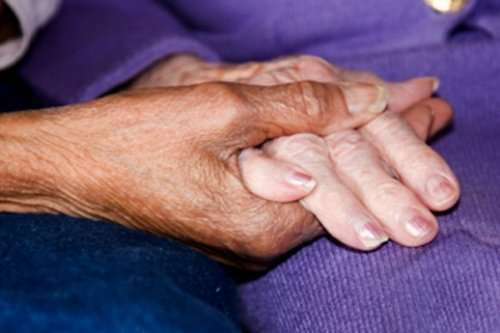Routine data won't help GPs identify patients who are most at risk of winter death

Expecting GPs to use medical records to identify individual patients who are most vulnerable to cold weather is unrealistic, according to a study by researchers at the University of Bristol, UCL and the University of Birmingham.
Guidance from the National Institute for Health and Care Excellence (NICE) recommends that GPs use existing data to identify patients most at risk from living in a cold home. However, the study, funded by the National Institute for Health Research (NIHR) and published in the British Journal of General Practice today [Tuesday 30 January], found that there was little evidence to show that vulnerable subgroups could be identified using routine primary care data.
Every year in England and Wales an average of 24,000 extra deaths occur in the months December to March than in other four-month periods of the year. Those known to be most vulnerable are older patients aged 85 and over and those with chronic health conditions such as chronic renal disease, coronary heart disease, diabetes and chronic obstructive pulmonary disease (COPD).
The researchers analysed data from over 300 general practices in the UK for patients aged 65 and over who died over a two-year period (34,752 records). They found that every 1°C drop in temperature was associated with 1.1 per cent increase in deaths. However, they could not clearly establish any single group of patients that were particularly affected, despite analysing an enormous dataset.
They did this by comparing the temperature in the local area on dates when a person died with temperatures a month earlier and a month later. Temperatures were generally lower when someone died, but the researchers looked to see if the difference was more marked for some groups than others.
They looked at a range of factors, all available in electronic patient records, including age, sex, living situation (whether in the community or an institution), location, and chronic conditions, and at other factors including deprivation, region, whether the patient had had an emergency hospital admission within the two years before death, and the average house energy efficiency for where they lived. No significant associations were found, though there was weak evidence of an increased risk for patients living in the north of England and for men.
Professor Richard Morris from the University of Bristol's Centre for Academic Primary Care, who led the research, said: "Primary care data does not routinely include information about whether patients' homes are cold, so there is no simple way for GPs to identify patients most at risk. Primary health care professionals, especially GPs, may also have little opportunity to visit people's homes, which means that they are reliant on the patient disclosing a cold home problem or on other professionals sharing that information. NICE's recommendation therefore appears unrealistic.
"Given that excess winter mortality persists, it may be more helpful for policy makers and practitioners to focus on improving information sharing between health, social care and the third sector as a way of identifying vulnerable individuals who have poorly heated homes, and on improving the quality of housing, particularly in the private rented sector, where heating and insulation are often poor."
More information: Peter Tammes et al. Use of primary care data to predict those most vulnerable to cold weather: a case-crossover analysis, British Journal of General Practice (2018). DOI: 10.3399/bjgp18X694829















